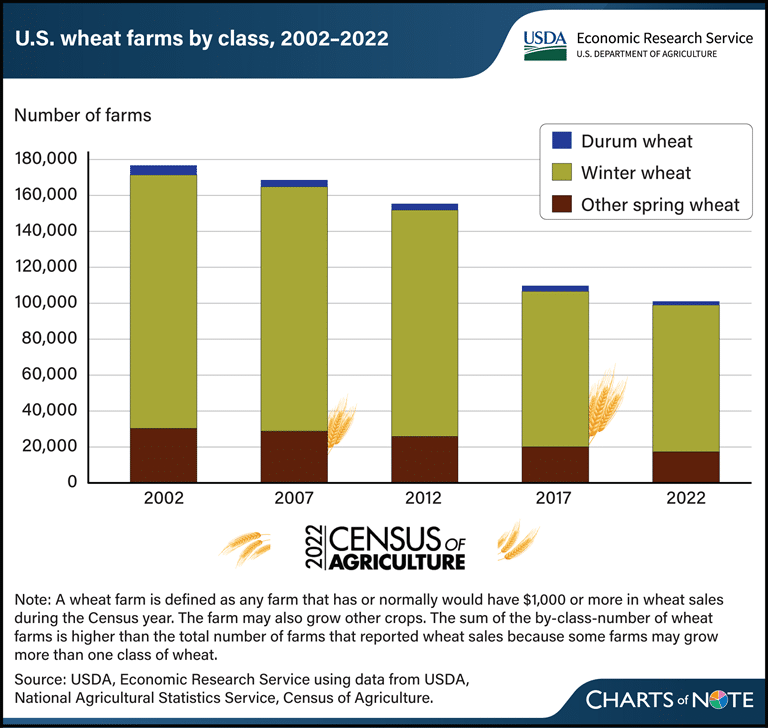The United States is likely to lose lucrative market share of wheat in Japan, the U.S. Department of Agriculture is warning the American agriculture industry.
The reason: other nations’ embrace of free trade deals.
“The current market preference for (Canadian spring wheat) over (American spring wheat) may be compounded in the coming years by the reduction in the Japanese government markup for 1CW if the (revived Trans Pacific Partnership) is effectuated,” says the report from the USDA’s Foreign Agriculture Service, titled Competitive Field Tilts Against US Wheat in Japan.
The report also suggests Australia’s share of the wheat market will increase if TPP is approved. As well, it highlights the European Union’s greater access to Japan due to its free trade deal with the country.
In 2016, Japan imported US$1.4 billion worth of wheat, with 45 percent coming from the U.S., USDA said in the report. It generally imports about 5.2 million tonnes of wheat for food every year, with 95 percent coming from the U.S., Canada and Australia.
Canada’s 1.7 million tonnes of wheat shipments to Japan represent 34 percent of imports in 2016, and have taken a bigger share of the market due to lower relative prices.
While the new TPP details aren’t known, the report assumes they will be similar to those in the deal that U.S. President Donald Trump pulled out of a year ago. They are almost the same as the details in the Japan-EU agreement.
Japan had agreed in the original TPP to gradually but steadily reduce a form of tariff on wheat for TPP members. That would have included the U.S., but the revived negotiations only contain the other 11 members. The tariffs in the original TPP were to be reduced by 45 percent over several years.
The report offers a USDA analysis of where other countries could gain a competitive edge over U.S. wheat in Japan’s market.
Almost all major U.S. agriculture and commodity groups supported TPP. Many have also lobbied Trump to leave the North American Free Trade Agreement intact and have urged the White House to try to achieve other trade deals to make up for the loss of TPP.
A frustrated National Association of Wheat Growers has already complained about the death of the TPP talks and the Trump government’s continued attacks on existing trade deals, such as the one with South Korea.
When asked to comment for this story, U.S. Wheat Associates pointed to its statement from one year ago, saying nothing had changed.
“Without TPP or alternative agreements, U.S. farmers will be forced to the sidelines of trade while losing market share in the region to our competitors, including Australia, Canada, Russia and the European Union, which have current agreements or are negotiating new ones,” says the Jan. 23, 2017, statement.













